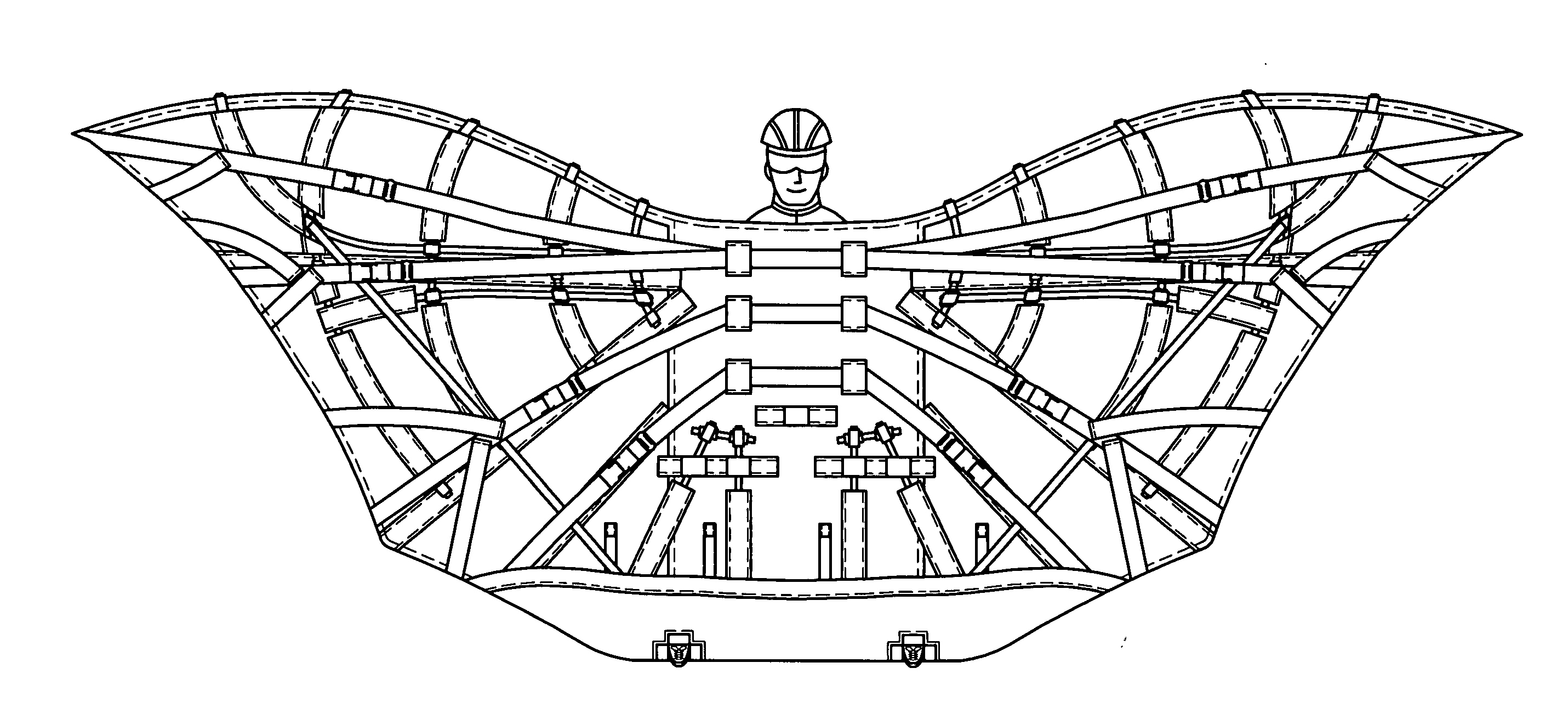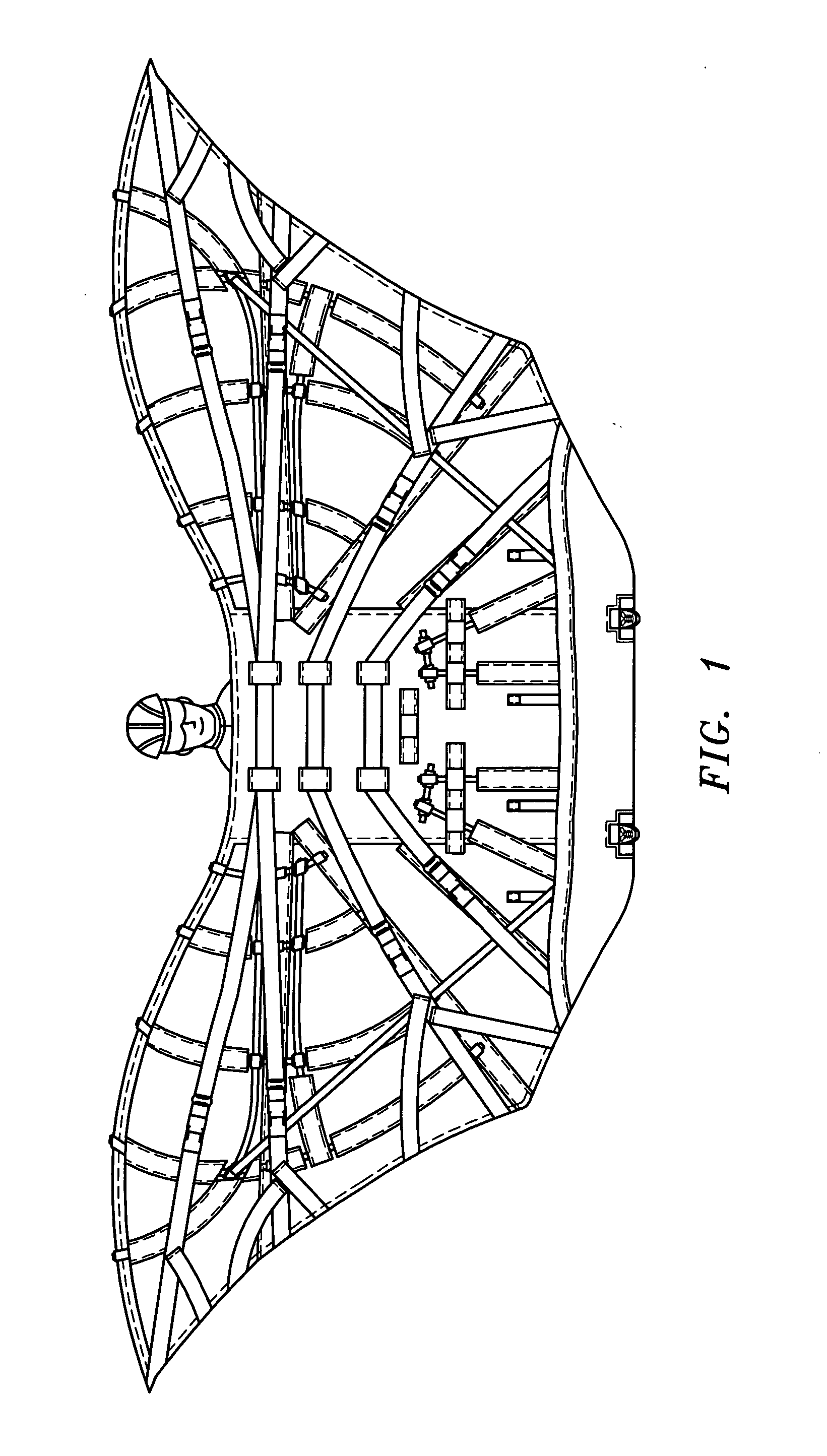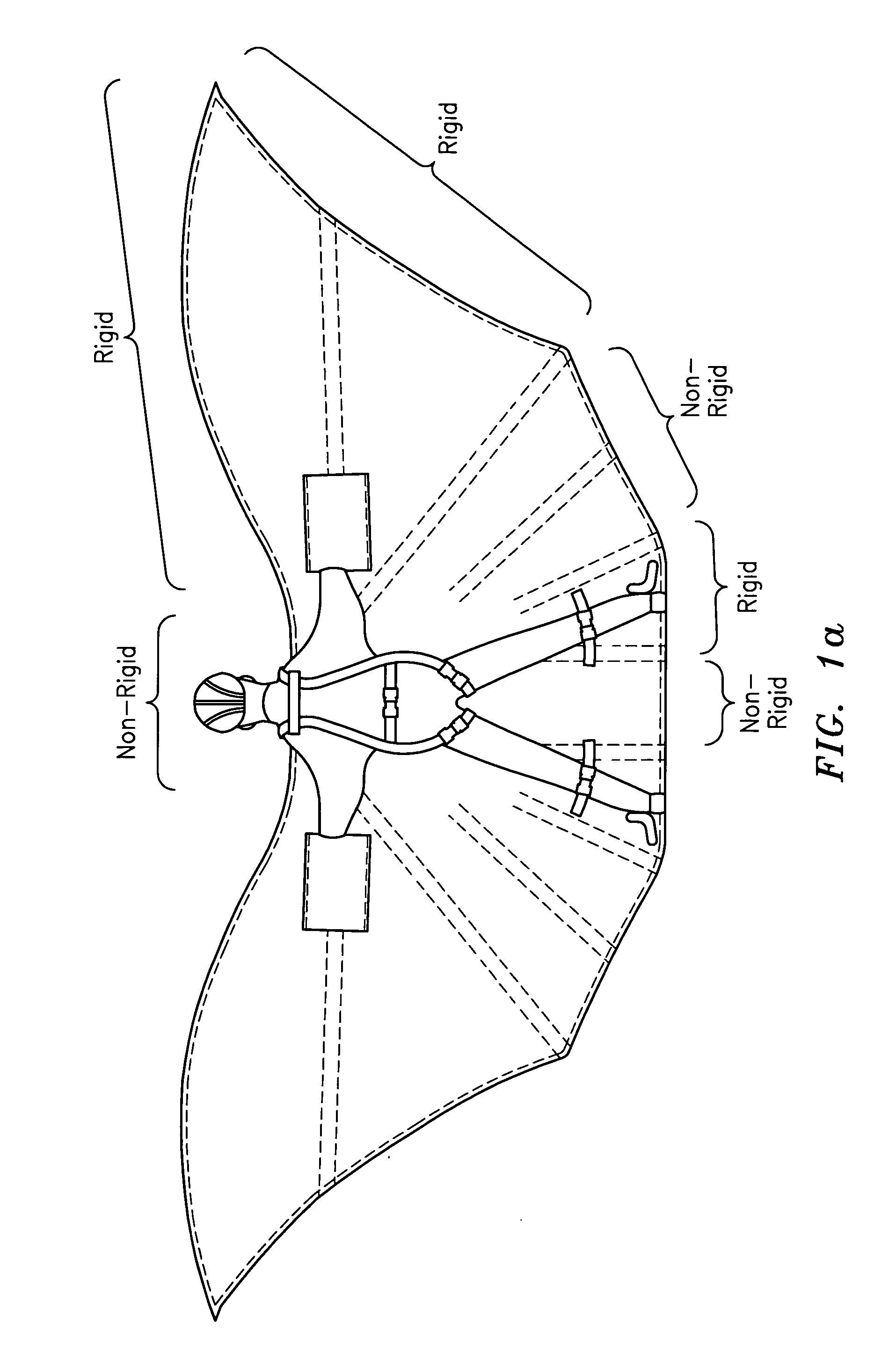Dynamic human/wind powered flying suit
- Summary
- Abstract
- Description
- Claims
- Application Information
AI Technical Summary
Benefits of technology
Problems solved by technology
Method used
Image
Examples
Embodiment Construction
A main sheet (10) (FIG. 2) consists of suitable sail fabric of rip stop nylon or Dacron in a wing span of approximately three times the height of the pilot. The main sheet (10) is cut in the general shape of a bat wing that extends from the pilot's shoulders down to the toes. The wing ends taper downwardly and inwardly to the pilot's feet in a bi-laterally symmetrical manner. The center portion of the main sheet (10) is re-enforced by a second strength layer (40) of same sail fabric. All fabric is fastened by suitable high strength sewing thread and sewing techniques. Strut sleeves (36) are strips of same fabric attached to main sheet (10) to hold extending framework struts onto the main sheet (10). The leading edge strut sleeves (38) are made by rolling over the main sheet (10) to form sleeves to accommodate leading edge struts (46). Strut connector sleeves (37) are strips of same fabric attached to the main sheet (10) to hold strut connectors (52,54,60,62,64) onto the main sheet (...
PUM
 Login to View More
Login to View More Abstract
Description
Claims
Application Information
 Login to View More
Login to View More - R&D
- Intellectual Property
- Life Sciences
- Materials
- Tech Scout
- Unparalleled Data Quality
- Higher Quality Content
- 60% Fewer Hallucinations
Browse by: Latest US Patents, China's latest patents, Technical Efficacy Thesaurus, Application Domain, Technology Topic, Popular Technical Reports.
© 2025 PatSnap. All rights reserved.Legal|Privacy policy|Modern Slavery Act Transparency Statement|Sitemap|About US| Contact US: help@patsnap.com



